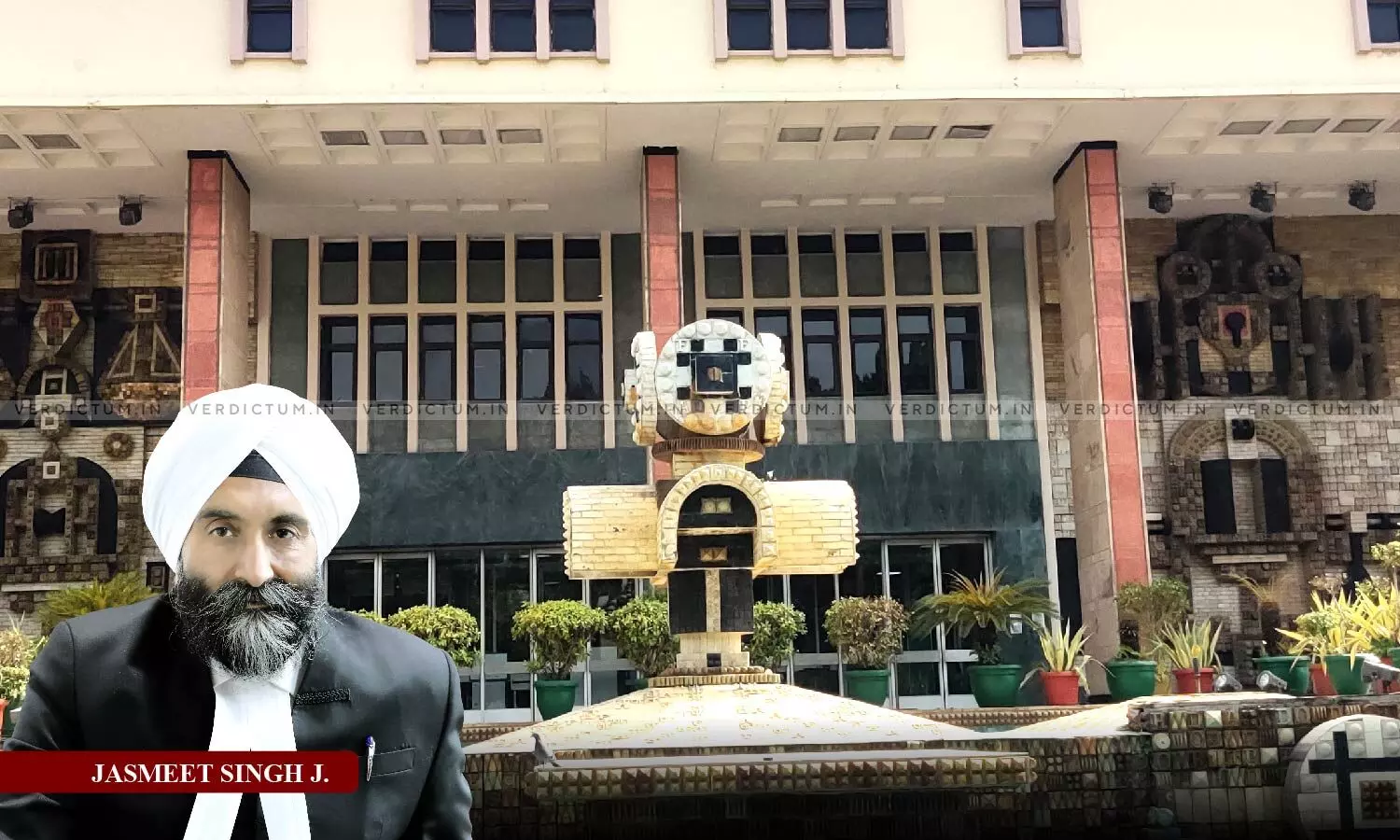
DDA Didn’t Perform Its Part Of Obligation: Delhi High Court Directs To Hand Over Possession Of Allotted Flat To Owner’s Son In 27-Yr-Old Case
 |
|The Delhi High Court has directed the DDA i.e., Delhi Development Authority to hand over the possession of an allotted flat to the son of the owner in a 27 years old dispute on the ground that the said authority did not perform its part of obligation.
The Court was deciding a writ petition filed by the son of the flat owner seeking issuance of writ of mandamus against the respondent to grant possession of the flat to him immediately after setting aside the cancellation order and affording him an opportunity to tender the balance amount payable as per the terms of the allotment letter. The petitioner also sought compensation for the delay of 19 years caused by the respondent in handing over the possession of the said flat.
A Single Bench of Justice Jasmeet Singh held, “The respondent-DDA having failed to hand over possession of the allotted flat has not performed its part of the obligation. The respondent-DDA cannot, without performing its part of the obligation, call upon the petitioner to make the balance payment and cancel the allotment unilaterally. … the petition is allowed and a writ of mandamus is issued directing the respondent to hand over LIG Flat bearing No. 5, Sector 18, Pocket 4, Block B, Rohini, Delhi. The cancellation order is also quashed.”
The Bench said that the demand letters issued by the respondent were without any basis and the actions on the part of the respondent-DDA were violative of the DAL (Demand-Cum-Allotment Letter).
Advocate Manoj V. George appeared on behalf of the petitioner while Standing Counsel Shobhana Takiar appeared on behalf of the respondent.
Facts of the Case -
The petitioner's father (allottee), applied for allotment of a flat under the IVth Registration Scheme on New Pattern, 1979 (NPRS-79) of the Delhi Development Authority in 1979 by paying an amount of Rs. 1,500/- as a deposit to be adjusted towards payment of the cost of the flat. He was issued a Certificate of Registration and then the DDA issued a demand-cum-allotment letter (DAL) in 1996 for the flat at a disposal cost of Rs. 2,97,800/- in favour of the allottee, as per which the allottee was either required to deposit the entire amount of Rs. 2,97,800/- within 30 days or convey acceptance within 30 days from date of issue of the letter by paying Rs. 15,000/-. The allottee was then required to deposit amounts ranging between Rs. 1,06,637.26/- to Rs. 1,09,303.18/- depending upon the date on which the amount was deposited in the account of DDA as stated in the DAL. The delay in making the late Confirmation Deposit was condoned by the DDA and vide a letter, the allottee enquired from the respondent about any interest amount due, whether payable or not, to which the DDA did not furnish a response.
The allottee, through his numerous letters, expressed his financial difficulty and sought possession of the flat to be able to continue paying instalments and then he got expired, leaving behind his wife and his son (the petitioner herein) as only legal heirs. Despite various attempts to get the possession of the allotted flat, the same was not done. In 2015, the petitioner’s mother expired, leaving behind the petitioner as the only legal heir. An RTI application was filed by the petitioner enquiring about the status of the flat but no reply was given by the respondent. The petitioner then preferred an appeal before the First Appellate Authority of DDA whereafter replies were received stating that the file of the petitioner was not traceable in the office of the respondent and the flat stood cancelled. Hence, the writ petition was filed.
The High Court in view of the above facts noted, “… the impugned action of the respondent cancelling the allotment of the petitioner without following the principles of natural justice is bad in law and cannot be sustained. In my opinion, the petition needs to be allowed on this ground alone, however, I am also proceeding to decide the case on merits. … once the time was extended by the respondent-DDA itself and the petitioner has made payments pursuant to the said extension, and the same have been accepted by the respondent without any protest or demur, the respondent-DDA should have handed over possession of the allotted flat to the petitioner on hire-purchase basis.”
The Court further noted that the hire-purchase concept, envisages that the allottee is put in possession of the flat/property in question and does not get ownership till the entire payment is made, however, during the said period, the allottee makes payment towards rent which is adjusted towards the purchase price. It held that once the entire payment is made, the ownership is transferred in favour of the allottee.
“In addition, a perusal of the demand letters of the respondent show that the same are totally contrary to law and facts. The substantial component of the demand in the demand letters of the respondent-DDA show that the respondent is seeking monthly instalments as well as interest on those monthly instalments. Before charging the instalments and the interest on those instalments, the basic feature of the hire-purchase agreement i.e. putting the petitioner in possession of the allotted flat has not been complied with”, also said the Court.
The Court observed that the fulcrum of the demand letters is itself misconceived and faulty as under the hire-purchase system under the DDA Regulations, before the owner can ask for payment of hire-purchase charges, the allottee must be put in possession of the allotted flat.
Accordingly, the High Court allowed the petition and issued necessary directions.
Cause Title- Wills John v. Delhi Development Authority (Neutral Citation: 2023:DHC:7722)